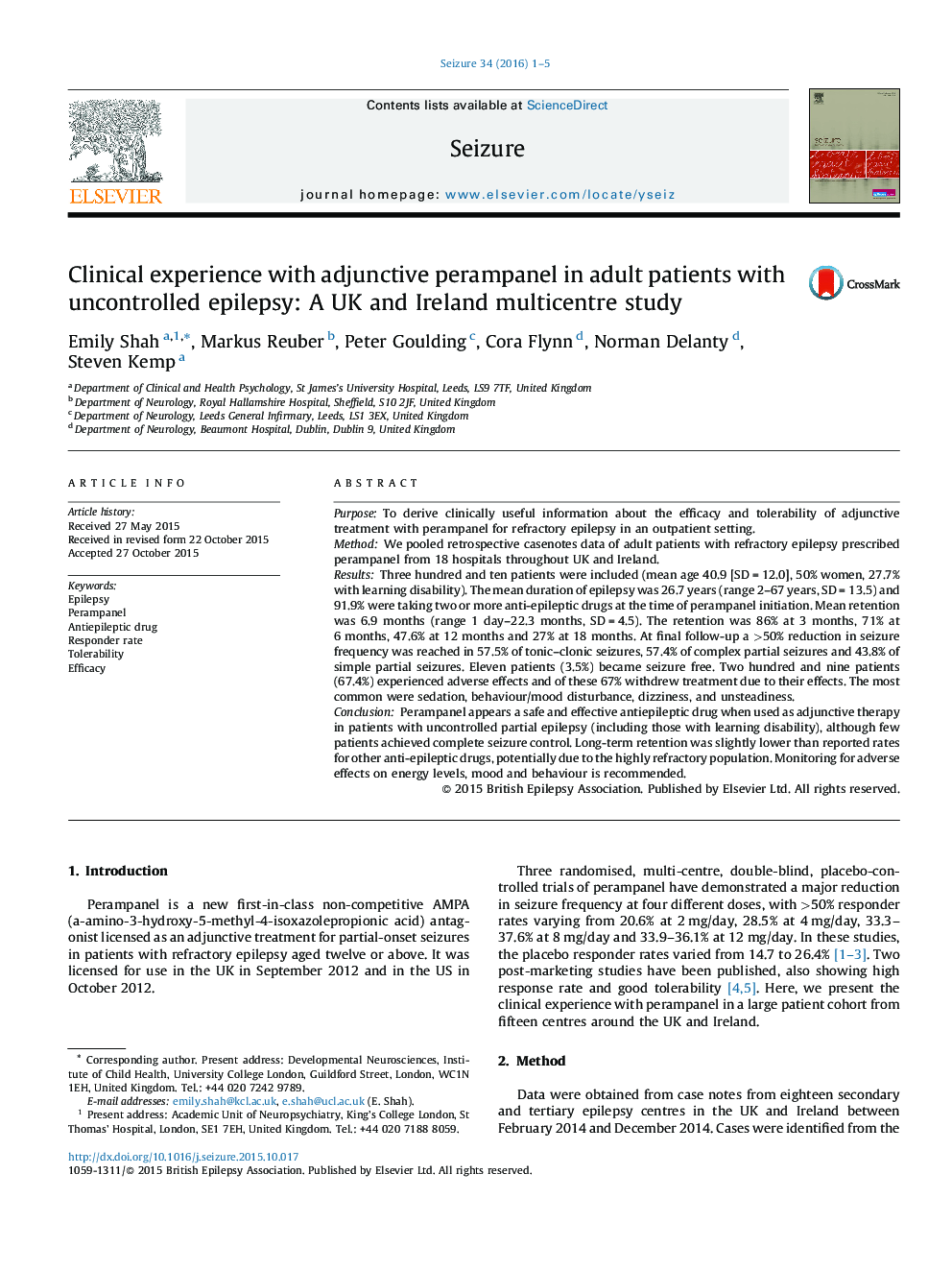| Article ID | Journal | Published Year | Pages | File Type |
|---|---|---|---|---|
| 340502 | Seizure | 2016 | 5 Pages |
•Retrospective audit of patient experience with perampanel in UK and Ireland hospital clinics.•Safe and effective adjunctive therapy for patients with uncontrolled partial epilepsy.•Similar safety and efficacy profile in subgroup of patients with learning disability.•Monitoring for adverse effects on energy levels, mood and behaviour is recommended.
PurposeTo derive clinically useful information about the efficacy and tolerability of adjunctive treatment with perampanel for refractory epilepsy in an outpatient setting.MethodWe pooled retrospective casenotes data of adult patients with refractory epilepsy prescribed perampanel from 18 hospitals throughout UK and Ireland.ResultsThree hundred and ten patients were included (mean age 40.9 [SD = 12.0], 50% women, 27.7% with learning disability). The mean duration of epilepsy was 26.7 years (range 2–67 years, SD = 13.5) and 91.9% were taking two or more anti-epileptic drugs at the time of perampanel initiation. Mean retention was 6.9 months (range 1 day–22.3 months, SD = 4.5). The retention was 86% at 3 months, 71% at 6 months, 47.6% at 12 months and 27% at 18 months. At final follow-up a >50% reduction in seizure frequency was reached in 57.5% of tonic–clonic seizures, 57.4% of complex partial seizures and 43.8% of simple partial seizures. Eleven patients (3.5%) became seizure free. Two hundred and nine patients (67.4%) experienced adverse effects and of these 67% withdrew treatment due to their effects. The most common were sedation, behaviour/mood disturbance, dizziness, and unsteadiness.ConclusionPerampanel appears a safe and effective antiepileptic drug when used as adjunctive therapy in patients with uncontrolled partial epilepsy (including those with learning disability), although few patients achieved complete seizure control. Long-term retention was slightly lower than reported rates for other anti-epileptic drugs, potentially due to the highly refractory population. Monitoring for adverse effects on energy levels, mood and behaviour is recommended.
